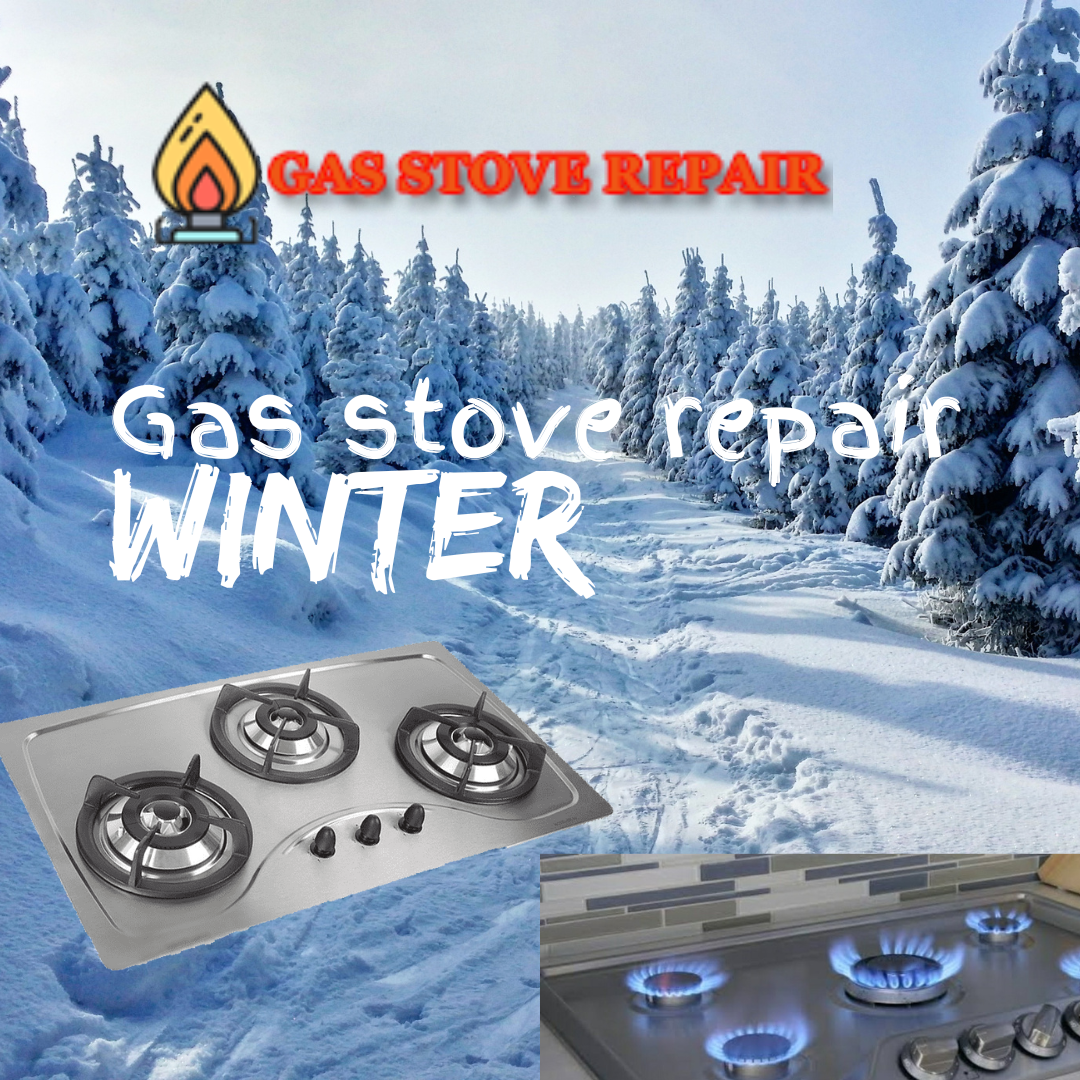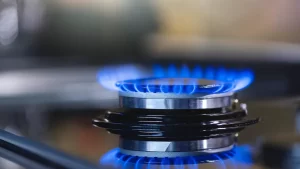Gas stoves can sometimes experience issues in winter due to a few reasons:
- Cold temperatures: In colder weather, the temperature of the gas can drop, causing it to become denser. This can affect the pressure in the gas lines and the flow of gas to the stove. If the pressure is too low, the flame on the stove may be weak or go out altogether.
- Gas line condensation: When the temperature drops, moisture in the gas lines can condense and form liquid. This liquid can then freeze, leading to blockages in the gas lines and affecting the flow of gas to the stove.
- Pilot light issues: Some gas stoves have a pilot light that can be affected by colder temperatures. If the pilot light goes out, the stove won’t function properly. Cold drafts or low gas pressure can contribute to pilot light issues in winter.
- Propane-related issues: If your gas stove is fueled by propane, extreme cold can cause propane to vaporize more slowly. Propane needs to vaporize to turn into gas for combustion. In very cold conditions, this process may slow down, affecting the performance of the stove.
To mitigate these issues, consider the following tips:
- Regular maintenance: Ensure that your gas stove is well-maintained, and all components are in good working condition. Clean the burners, check for leaks, and inspect the pilot light regularly.
- Protect gas lines: If possible, insulate or protect the gas lines from extreme cold to prevent condensation and freezing.
- Use a space heater: If you’re in an area with extremely low temperatures, using a space heater in the kitchen for a short time before cooking can help raise the temperature and reduce the impact of cold on the gas system.
- Keep the area well-ventilated: Adequate ventilation is essential when using gas appliances. Ensure that the kitchen is well-ventilated to prevent the accumulation of gases and ensure proper combustion.
Here are steps you can take to troubleshoot and solve these problems:
- Inspect the Gas Supply:
- Check for leaks: Use a gas leak detector solution or soapy water to identify any leaks in the gas line connections. If you detect a leak, repair it immediately.
- Verify gas pressure: Ensure that the gas pressure is within the recommended range. Low pressure can result in weak or extinguished flames.
- Examine the Pilot Light:
- Check if the pilot light is lit: If it’s out, relight it according to the manufacturer’s instructions.
- Clean the pilot assembly: Dust and debris can accumulate over time, affecting the pilot light’s performance. Clean the pilot assembly carefully.
- Evaluate Ventilation:
- Ensure proper ventilation: Adequate ventilation is crucial for gas combustion. Make sure vents are clear and unobstructed to prevent the accumulation of carbon monoxide.
- Inspect Gas Lines:
- Examine gas lines for condensation: If possible, insulate or protect the gas lines to prevent condensation and freezing. Install heat tape if necessary.
- Propane-Specific Considerations:
- For propane stoves, evaluate the tank: Ensure the propane tank is adequately filled and functioning. Consider using a tank blanket or other insulation to mitigate the effects of extreme cold.
- Cold Weather Precautions:
- Warm up the stove: If your stove experiences issues in extremely cold weather, consider preheating the appliance by turning it on for a short period before cooking.
- Use a space heater: Temporarily use a space heater in the kitchen to raise the ambient temperature and improve the performance of the gas stove.
- Professional Assistance:
- If the issues persist, it’s advisable to consult with a professional technician. They can conduct a thorough inspection, identify specific problems, and perform any necessary repairs or adjustments.
- Manufacturer’s Guidelines:
- Always follow the manufacturer’s guidelines for maintenance, troubleshooting, and repairs. Refer to the user manual for your specific gas stove model for detailed instructions.
a specific company or brand that universally experiences more issues with gas stoves in changing weather conditions. The reliability of gas stoves can depend on various factors, including the specific model, maintenance practices, and local conditions. Different users may have different experiences with the same brand or model.
However, some general tips can help you make an informed decision when choosing a gas stove:
- Research and Reviews:
- Look for customer reviews and ratings for the specific gas stove model you are considering. This can give you insights into the experiences of other users with the same product.
- Brand Reputation:
- Consider the reputation of the brand. Established brands with a history of producing reliable appliances may be a safer bet.
- Warranty and Customer Support:
- Check the warranty offered by the manufacturer. A longer and more comprehensive warranty can be an indication of the manufacturer’s confidence in their product. Additionally, good customer support is essential in case you encounter issues.
- Energy Star and Certifications:
- Look for gas stoves that carry certifications such as Energy Star, which signifies energy efficiency and adherence to industry standards.
- Consult Professionals:
- Seek advice from professionals in the field, such as appliance technicians or retailers who specialize in kitchen appliances. They may have insights into the performance and reliability of different brands and models.
- User Feedback:
- Engage with online forums or communities where users discuss their experiences with different gas stove brands. This can provide valuable real-world insights.
- Consider Local Conditions:
- Factors such as climate and altitude can affect the performance of gas stoves. If you live in an area with extreme weather conditions, consider choosing a stove designed to handle those conditions.
- Personalized Needs:
- Consider your specific cooking needs and preferences. Some brands or models may excel in certain features or functionalities that are important to you.
Remember that even reputable brands may have specific models or product lines that perform differently.






